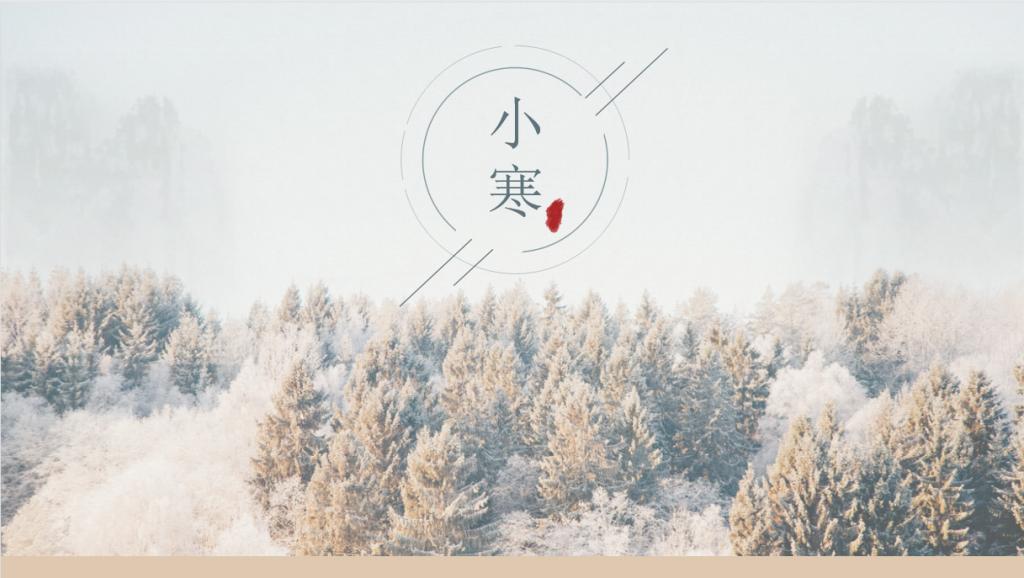Editor's note: The 24 Solar terms are an ancient Chinese calendar used to guide farming. They are the crystallization of the accumulated experience and wisdom of the working people of the Chinese nation. Since ancient China was an agricultural society, people required a strict understanding of the sun’s movement, and farming was conducted entirely according to the sun as well. Therefore, the “24 solar terms”, which reflects the sun’s movement cycle, were added to the calendar as the standard for determining leap months. The 24 solar terms are: Start of Spring, Rain, Awakening of Insects, Spring Equinox, Qingming festival, Grain Rain, Start of Summer, Grain buds, Grain in Ear, Summer Solstice, Minor Heat, Major Heat, Start of Autumn, End of Heat, White Dew, Autumn Equinox, Cold Dew, Frost’s Descent, Start of Winter, Minor Snow, Major Snow, Winter Solstice, Minor Cold and Major Cold. On November 30, 2016, China’s “24 Solar terms” were officially inscribed on UNESCO’s Representative List of intangible Cultural Heritages of Humanity. We have introduced this 24 Solar terms column to bring you a taste of the beauty of traditional Chinese culture.

Minor Cold, or Xiaohan in Chinese, the 23rd of the 24 solar terms in the Chinese lunar calendar, falls on January 5th this year. The arrival of Xiaohan marks a decline in temperature across much of the Northern Hemisphere, bringing the coldest period in a year. Actually, this is the coldest time of the year.
Ancient Chinese dubbed the coldest winter days “Sanjiu," referring to the third nine-day unit after the Winter Solstice. As the old saying goes, "the sanjiu is extremely cold," meaning the third nine-day unit after the Winter Solstice is frigid. It overlaps exactly with Xiaohan, and this year it’s also accurate. According to weather reports, regions across most of China have recently ushered in the coldest period of the year.
From ancient times to the present, the traditional customs of Xiaohan are pretty much the same. Whether in cities or in towns, many people go out to admire the plum blossoms. In some parts of northern China, people can also ski on outdoor ice rinks, which is called “Bingxi” in ancient Chinese. In rural areas, farming has come to a halt and the farmers’ hard work has come to an end. Supplies for next year have been stockpiled, and families are beginning to bunker down for the winter. People sit on their heated kang beds and cut red paper decorations for their windowpanes.
It may still be a month away, but people are already beginning to get ready for the mother of all feasts—Chinese Spring Festival. In the old days, Chinese families would usually start to purchase the necessities for the Spring Festival, such as fireworks, colored lights, Spring Festival prints, incense, as well as food. Many people would write couplets and make paper cuts by themselves.

In addition, it is a tradition to eat “Laba congee” on this special day. Congee is cooked with rice, red beans, peanuts, dried fruit and has a distinctive appearance. However, there are many other options. In the city of Nanjing, for instance, people cook rice with vegetables. By mixing green vegetables, sausages and rashers with rice, it smells and tastes just as appetizing as Laba congee. In southern China’s Guangdong Province, residents traditionally eat sticky rice. The rice is usually mixed with sausage, meat and peanuts to add flavor and keep it from becoming too sticky.
Even with temperatures plummeting at this time of year, spring is not far away. As the second-to-last solar term of the year, Minor Cold is a prelude to the coming spring, and birds know it best. Wild geese that winter in the south leave warmer places and migrate northward in flocks during Xiaohan. The magpies, which are commonly seen in northern regions, will begin nesting for new fledglings, and pheasants will crow in search of a mate. As for plants, not all of them wither during the harsh winter, and some of them even grow beautiful flowers to add colors in Xiaohan. Wintersweet, camellia, and plum blossoms are all good cold-bearers, and their beautiful blossoms will make you forget the coldness.

